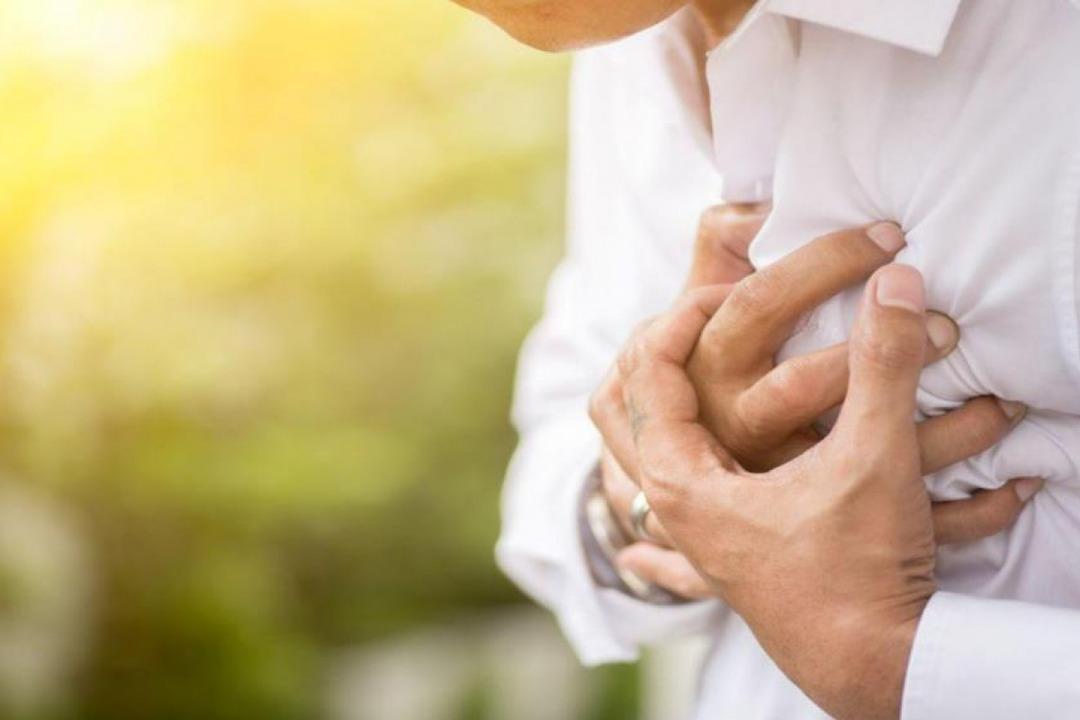Summer heat can trigger a heart attack! Experts warn: "If you jump into cold water suddenly, the risk increases"

Prof. Dr. Turhan stated that the body widens blood vessels (vasodilation) to release heat due to increased temperature, and said, “This widening in the blood vessels causes a drop in blood pressure. The heart has to pump faster and stronger to balance the falling blood pressure. This situation can increase the workload of the heart in heart patients and cause serious problems.”

Prof. Dr. Turhan stated that in the summer months, due to excessive sweating in the body, some important electrolytes in the blood can seriously decrease and excessive fluid loss can occur, and said, “The serious increase in body temperature causes the blood vessels to dilate, directing some of the blood pumped by the heart under the skin. This situation can cause a decrease in blood flow to vital organs such as the heart and brain, which can lead to negative results related to the heart and brain. Excessive sweating due to increasing temperature and humidity in the summer months can lead to serious fluid loss in the body. When this situation is accompanied by insufficient fluid intake, blood density increases seriously, which increases the risk of clotting in the vessels and can lead to serious life-threatening results such as heart attack or stroke.”

Prof. Dr. Turhan listed some complaints (symptoms) that especially those with heart and cardiovascular diseases should pay attention to in hot weather as follows: “Chest pain is the most common complaint we encounter in heart patients. Due to the increasing temperature and humidity in the summer months, the heart’s need for oxygen increases, and as a result, chest pain due to cardiovascular disease may occur. The increase in the heart’s workload due to hot weather and humidity can make breathing difficult, especially in patients with heart failure and heart valve disease. Due to the fact that hot weather makes circulation difficult, swelling (edema) may develop in the legs, especially in patients with heart failure and heart valve disease. The expansion in the veins and fluid loss in the body due to the increase in temperature can cause low blood pressure, leading to complaints such as blackout and dizziness in the patient. This situation affects the elderly and those with serious structural heart disease to a greater extent, causing confusion or fainting. Due to the increase in temperature, the patient’s heart rate may increase or rhythm disturbances may develop, causing palpitations, shortness of breath or dizziness in the patient.”

Prof. Dr. Turhan stated that the serious fluid and mineral loss that occurs in the body as a result of excessive sweating due to heat and humidity can cause serious problems especially in heart patients, and said, “The fluid loss that occurs with excessive sweating significantly reduces the amount of intravascular fluid. As a result, the patient experiences a drop in blood pressure and an increase in heart rate. This can cause palpitations, dizziness or fainting. The drop in blood pressure, increase in pulse and increase in blood density also increase the risk of heart attack. The loss of minerals such as potassium and magnesium due to sweating can affect the electrical conduction system of the heart and cause life-threatening rhythm disorders.”

Underlining that it is important for heart patients to consume enough water in the summer for the healthy functioning of the heart and circulatory system, Prof. Dr. Turhan said, “Adequate water consumption may vary depending on the person’s health condition. It is recommended that heart patients consume an average of 2-2.5 liters of fluid per day during the hot summer months. However, excessive fluid consumption in patients with heart failure, serious heart valve disease or kidney failure can also cause fluid accumulation in the body and negatively affect the patient’s health. In such patients, how much fluid to consume is determined by the recommendation of the doctor who follows the patient.”
"DO NOT SWIMMING INTO THE SEA IMMEDIATELY AFTER MEAL"Prof. Dr. Turhan said that heart patients can walk and exercise in accordance with the recommendations of their doctors, but that exercises done during the hot hours of the day outside the recommendations of their doctors can lead to serious health and life risks. Prof. Dr. Turhan made the following suggestions on how heart patients can exercise: “Walking and exercising should be done between 06:00-08:00 in the morning when the weather is coolest, humidity and sunlight are at their lowest, and between 19:00-21:00 in the evening when the sun’s effect decreases. Walking and exercising should be avoided between 11:00-17:00 when the temperature and humidity are at their highest, the sun’s rays are at their highest and the risk of heat stroke is at its highest. Heart patients should enter the cold water suddenly, which may increase their risk of heart attack, arrhythmia or fainting, so they should enter the cold water slowly, starting from their ankles. Heart patients should enter the sea or pool at appropriate times during their summer vacation, between 08:00-10:00 in the morning or between 17:00-19:00 in the evening. Entering the water on an empty stomach can cause fainting due to low blood sugar and low blood pressure. Entering the water immediately after eating can strain the heart, Therefore, it is not appropriate to enter the pool or sea on an empty stomach or immediately after a meal. The most appropriate approach is to enter the water at least 1-1.5 hours after a meal. Long-distance or fast swimming on hot summer days can be risky for heart patients. Short-term and light-paced swimming is more suitable for heart patients. Other issues that should be considered are not to enter the sea or pool alone, using materials that provide shade from the sun and consuming enough water.”

(DHA) This content was published by Sedef Karatay
mynet



